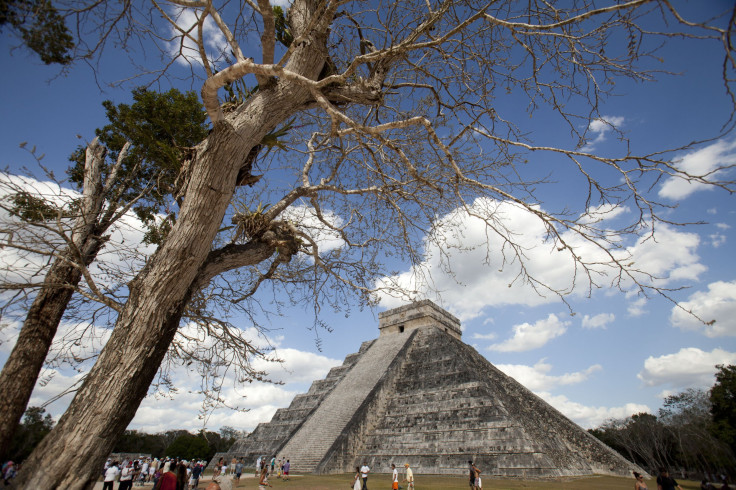Why Did The Maya Civilization Decline? New Research Suggests Irrigation Technology Is To Blame

The mystery behind the fall of the Maya civilization is one that has confused scientists for decades. The seemingly flourishing Central American society peaked in the Classic Maya period (300 to 660 CE) but went under abruptly in the 8th and 9th centuries. Some experts blame overpopulation and migration while others say warfare is to blame. Now, researchers have a new possible explanation: irrigation.
The irrigation technology that helped the Mayans during droughts is believed to have made the society vulnerable, say a team of researchers at Austria’s TU Wien, who used mathematical models to look at sociology and hydrology. By calculating relationships between birth rate, food availability and water shortages, the team was able to make some educated deductions.
"It's well-known that the Mayans built water reservoirs in preparation for dry spells," says Linda Kuil, one of Prof. Günter Blöschl's PhD students of the Vienna Doctoral Program on Water Resource Systems, in a statement. "With our model, we can now analyse the effects of the Mayans' water engineering on their society. It is also possible to simulate scenarios with and without water reservoirs and compare the consequences of such decisions."
The mathematical models confirmed the obvious: irrigation was vital during short periods of drought. In the simulations, the population declined without water reservoirs and continued to thrive with reservoirs. But this association was not seen in prolonged dry spells, where the population initially continues growing and the per person demand stays the same. The growing demand was found to result in a sharp decline in population in the event of another drought.
While the Günter Blöschl-led team of researchers offer a possible explanation—they published their findings in the interdisciplinary journal Water Resources Research—it need not be a historically accurate one. That said, the implications of the modeling are significant since they shed insight into our future by spotlighting the delicacy of an engineered society.
"When it comes to scarce resources, the simplest solutions on the surface are not always the best ones," says Kuil. "You have to change people's behavior, reassess society's dependency on this resource and reduce consumption -- otherwise society may in fact be more vulnerable to catastrophes rather than safer, despite clever technical solutions."
© Copyright IBTimes 2024. All rights reserved.





















